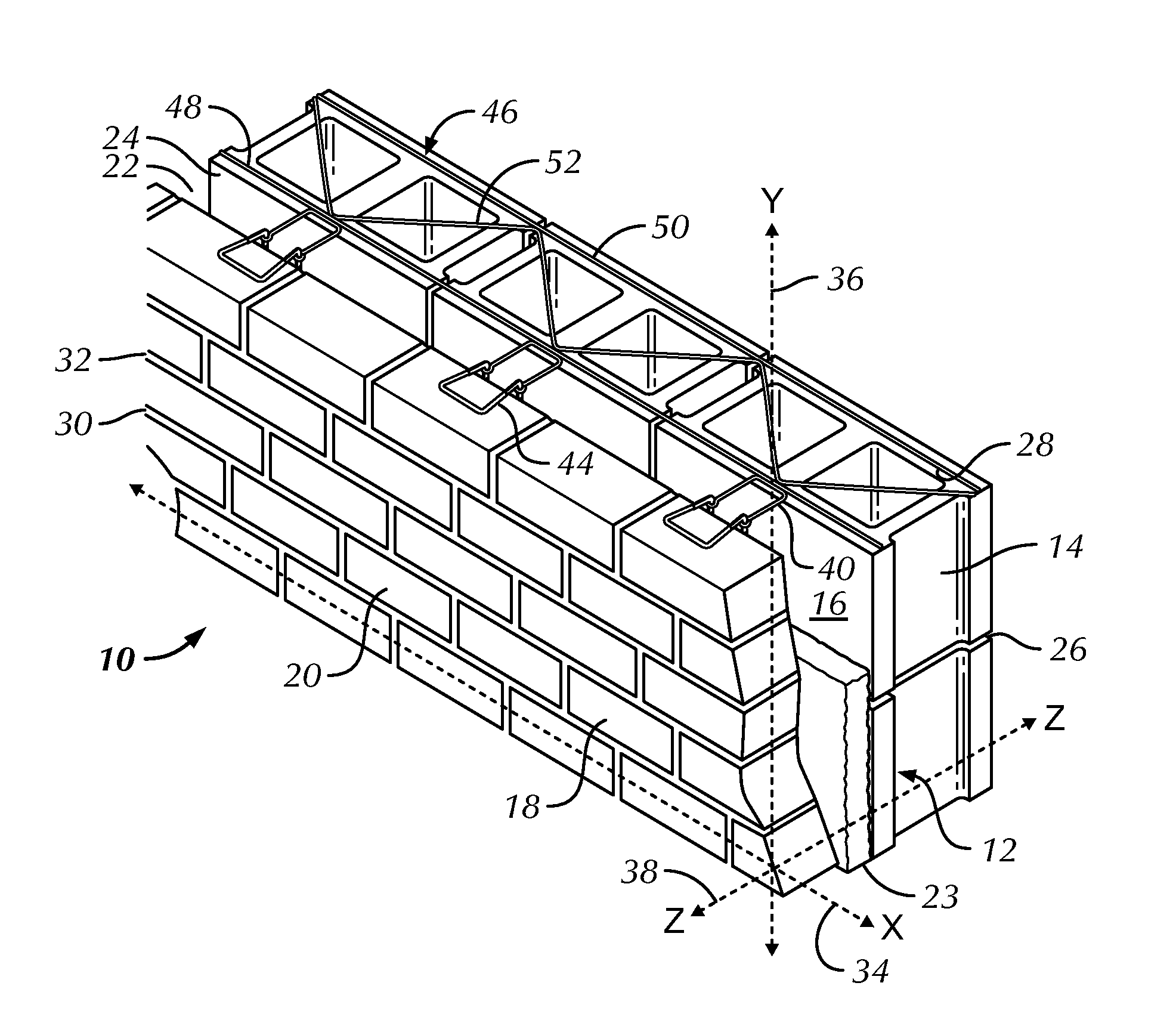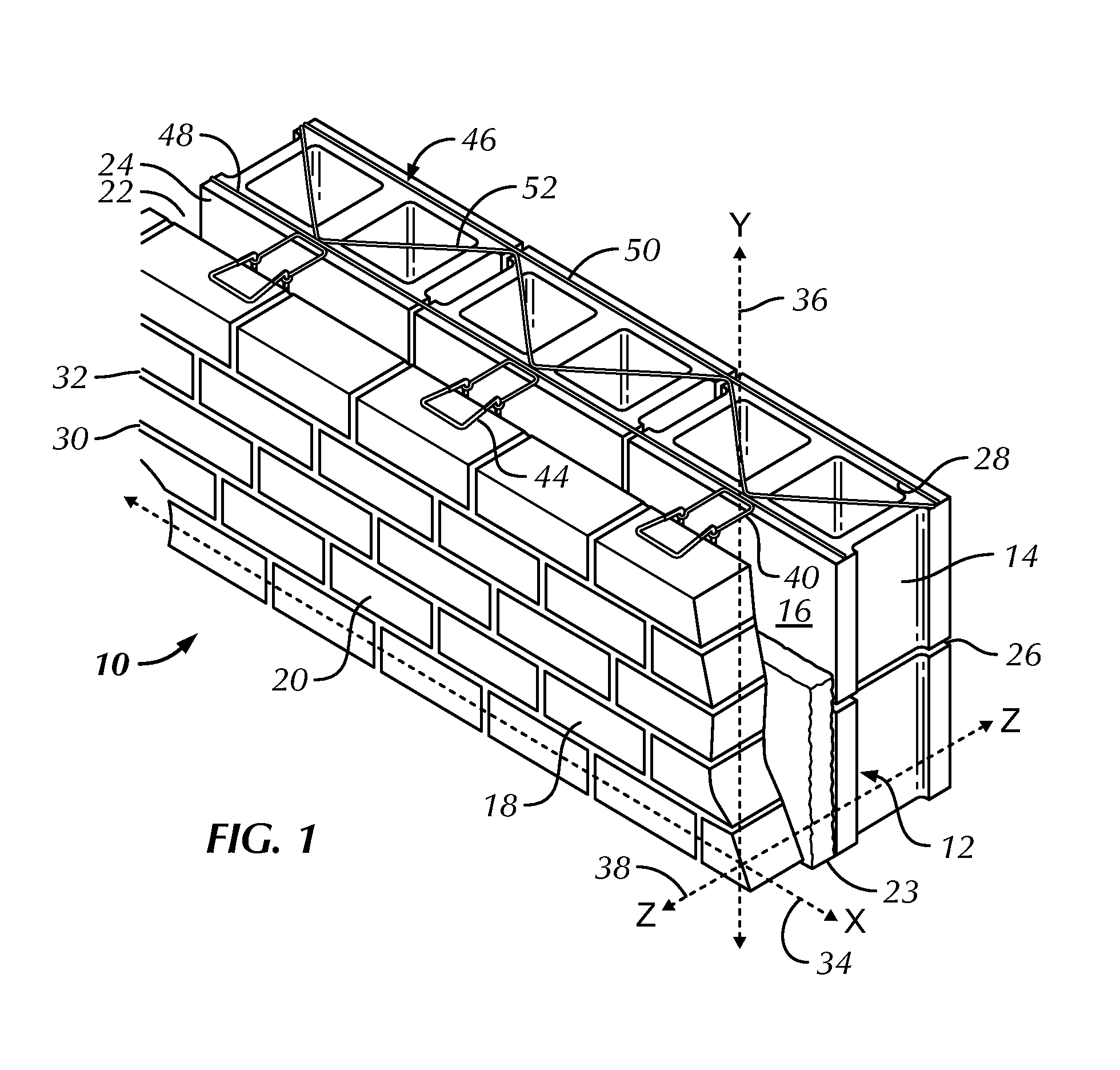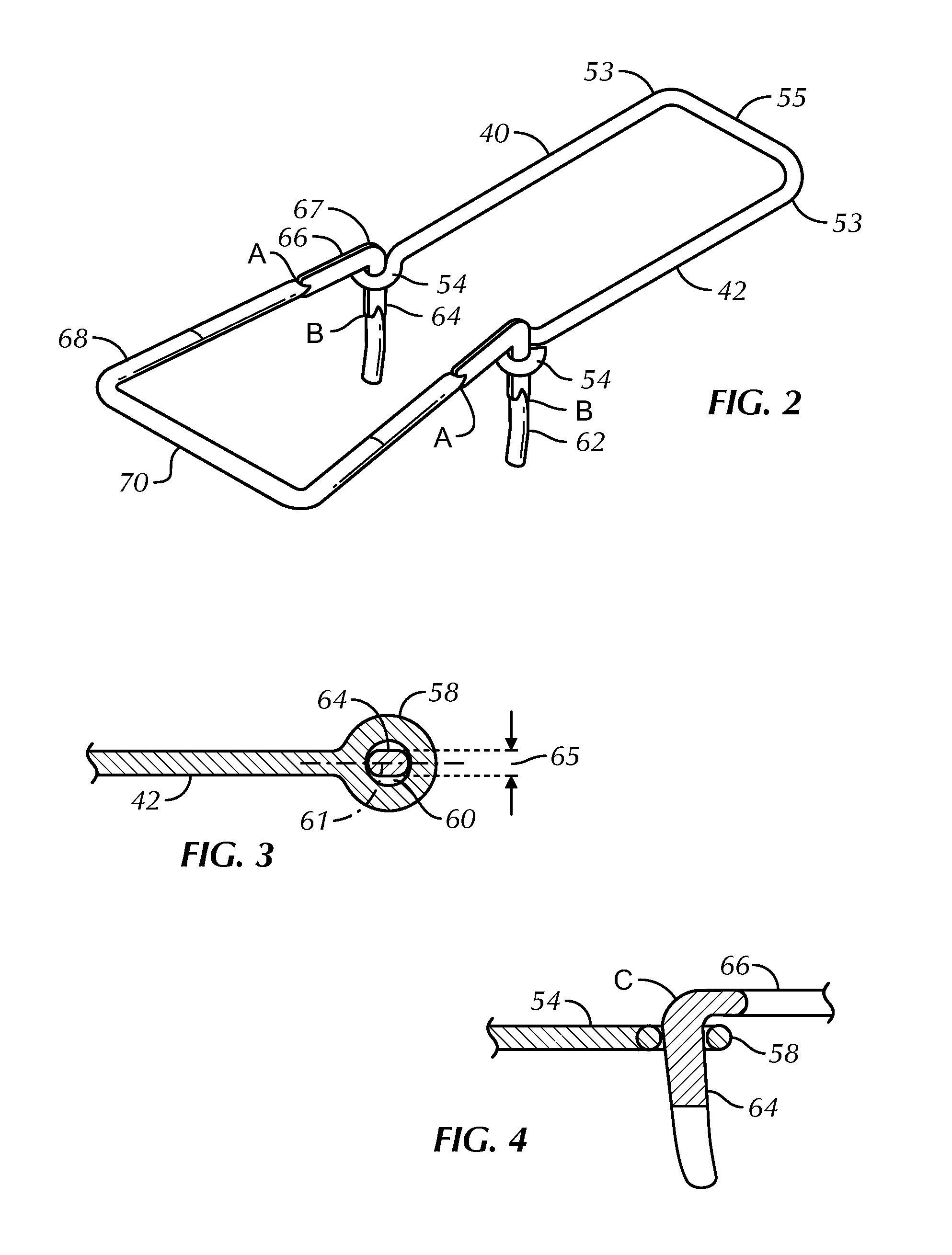High-strength partially compressed veneer ties and anchoring systems utilizing the same
- Summary
- Abstract
- Description
- Claims
- Application Information
AI Technical Summary
Benefits of technology
Problems solved by technology
Method used
Image
Examples
first embodiment
[0054]The description which follows is of three embodiments of anchoring systems utilizing the high-strength partially compressed veneer tie devices of this invention, which devices are suitable for nonseismic and seismic cavity wall applications. Although each high-strength partially compressed veneer tie is adaptable to varied inner wythe structures, two of the embodiments apply to cavity walls with masonry block inner wythes, and the remaining embodiment to a cavity wall with a dry wall (sheetrock) inner wythe. The wall anchor of the first embodiment is adapted from that shown in U.S. Pat. No. 6,789,365 of the inventors hereof.
[0055]Referring now to FIGS. 1 through 6 and 9, the first embodiment of the anchoring system hereof including a high-strength partially compressed anchoring system of this invention is shown and is referred to generally by the number 10. In this embodiment, a wall structure 12 is shown having a backup wall or inner wythe 14 of masonry blocks 16 and a veneer...
second embodiment
[0068]In the second embodiment in adapting the veneer tie 144 for high-strength applications, it is noted that the above-described arrangement of wire formatives is strengthened by the cold working thereof. In the past, while compressively altering wire formatives is taught by the patents of the inventors hereof, namely, U.S. Pat. Nos. 6,668,505 and 7,017,318, the teaching is to reduce the height of the wire formative inserted into the bed joint or between insulative panels. In this invention, in contrast to these past inventions, the compressive altering of wire formatives is found to enhance the strength of existing specified wire formatives to create anchoring systems with superior resistance to environmental forces, especially those exerted substantially normal to the exterior face of the outer wythe.
[0069]The partially compressively reduced pintles 162 portion C of veneer tie 144 are considerably compressed while maintaining the same mass of material per linear unit as the adja...
third embodiment
[0071]Referring now to FIGS. 8 through 10, the high-strength pintle anchoring system is shown and is referred to generally by the numeral 210. The system 210 employs a sheetmetal wall anchor 240, Catalog #HB-200 manufactured by Hohmann and Barnard, Inc., a MiTek-Berkshire Hathaway company, Hauppauge, N.Y. 11788. The dry wall structure 212 is shown having an interior wythe 214 with wallboard 216 as the interior and exterior facings thereof. An exterior or outer wythe 218 of facing brick 220 is attached to dry wall structure 212 and a cavity 222 is formed therebetween. The dry wall structure 212 is constructed to include, besides the wallboard facings 216, vertical channels 224 with insulation layers 226 disposed between adjacent channel members 224. Selected bed joints 228 and 230 are constructed to be in cooperative functional relationship with the veneer tie described in more detail below.
[0072]For purposes of discussion, the exterior surface 232 of the interior wythe 214 contains ...
PUM
 Login to View More
Login to View More Abstract
Description
Claims
Application Information
 Login to View More
Login to View More - R&D
- Intellectual Property
- Life Sciences
- Materials
- Tech Scout
- Unparalleled Data Quality
- Higher Quality Content
- 60% Fewer Hallucinations
Browse by: Latest US Patents, China's latest patents, Technical Efficacy Thesaurus, Application Domain, Technology Topic, Popular Technical Reports.
© 2025 PatSnap. All rights reserved.Legal|Privacy policy|Modern Slavery Act Transparency Statement|Sitemap|About US| Contact US: help@patsnap.com



